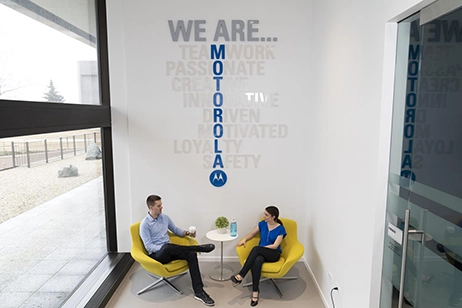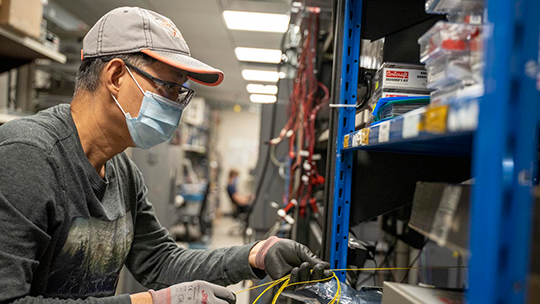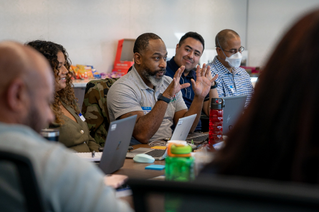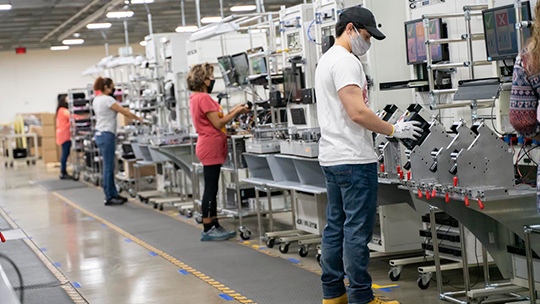


Supply chain responsibility at Motorola Solutions
We continually strive to source efficiently and ethically from a diverse supply base while upholding high labor and environmental standards.
Our approach to supply chain corporate responsibility

Motorola Solutions engages directly with our tier-one suppliers to assess their performance and expect these suppliers to pass down social and environmental responsibility requirements to their suppliers. We are also a member of the Responsible Business Alliance, an organization dedicated to supporting continuous improvement in the ethical responsibility of the electronic industrys’ supply chain.
Our core values
To ensure that our supply chain responsibility program is robust and maintains a high standard, we prioritize these core values:
Human rights
We believe in uncompromising integrity and constant respect for people. We continually seek opportunities for improving our human rights program and are committed to maintaining a high-quality program through self-assessments, industry collaboration, capability building, and stakeholder engagement.
Learn moreSupplier diversity
We're committed to identifying and partnering with qualified businesses that can contribute to our shared success. We offer a transparent sourcing process for various business types to compete for opportunities in accordance with the highest ethical standards and compliance requirements.
The environment
At Motorola Solutions, we have set ambitious goals to combat climate change and maintain high environmental standards for our products and services. These goals extend to our supply chain and we expect our suppliers to align with our goals and report to us on their performance.
Learn moreSupplier alignment
We expect our suppliers to align with our high labor and environmental standards at every stage in the supply chain. Our suppliers are required to adopt our Supplier Code of Conduct which outlines our corporate responsibility conditions for our suppliers.
Read the code



